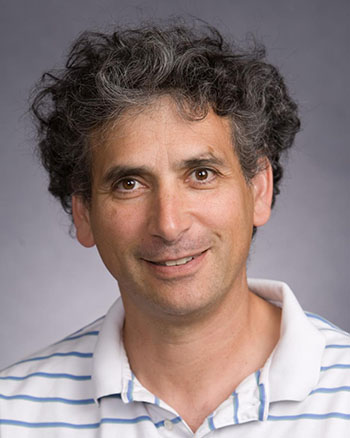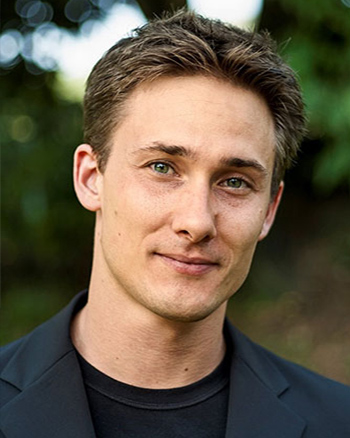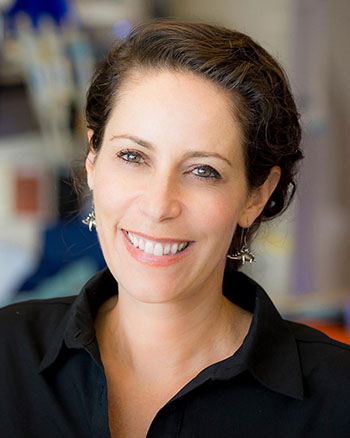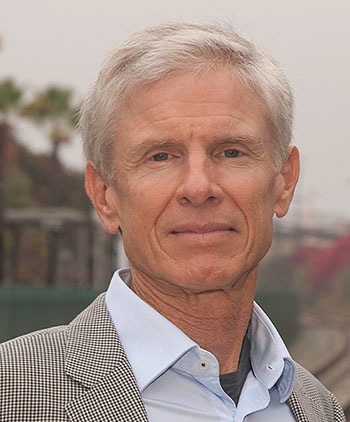Four Biologists Receive More Than $3 Million for Transformative Research
October 7, 2016
By Kim McDonald
Three biology professors—Ethan Bier, Ananda Goldrath and Stephen Hedrick—will receive more than $2 million from the National Institutes of Health over the next five years, while postdoctoral researcher Valentino Gantz will receive an additional $1.25 million from the agency over the same period to support their innovative and transformative research.
The two prestigious grants to the four biologists were among 88 grants nationwide that the NIH awarded this year through its Common Fund to highly creative and exceptional scientists with bold approaches to major challenges in biomedical research.
NIH traditionally supports research projects, not individual investigators. However, the agency’s High-Risk, High-Reward Research awards program, which provided the grants, seeks to identify scientists with ideas that have the potential for high impact, but may be at a stage too early to fare well in the traditional peer review process.
These awards encourage creative, outside-the-box thinkers to pursue exciting and innovative ideas in biomedical research, according to the agency.
The program continues to support high-caliber investigators whose ideas stretch the boundaries of our scientific knowledge, said NIH Director Francis S. Collins. We welcome the newest cohort of outstanding scientists to the program and look forward to their valuable contributions.
Ethan Bier, Ananda Goldrath and Stephen Hedrick were awarded an NIH Transformative Research Award for fiscal 2016 for their research project Mutagenic Chain Reaction-Facilitated Immunotherapy. The biologists will receive a total of more than $2-million for their project over the next five years.
The Transformative Research Award, established in 2009, promotes cross-cutting, interdisciplinary approaches and is open to individuals and teams of investigators who propose research that could potentially create or challenge existing paradigms.
Valentino Gantz, a postdoctoral researcher working in the laboratory of Ethan Bier, received an NIH Early Independence Award for his project Development, Characterization and Application of CRISPR/Cas9 Gene Drive Technologies and Related Active Genetic Elements to Benefit Research and Society at Large. He will receive $1.25 million over the next five years for his research project.
The Early Independence Award, established in 2010, provides an opportunity for exceptional junior scientists who have recently received their doctoral degree or completed their medical residency to skip traditional post-doctoral training and move immediately into independent research positions.
More information about the four UC San Diego biologists, listed in alphabetical order, follows:

Ethan Bier
Ethan Bier is a professor in the Section of Cell and Developmental Biology at UC San Diego. There are three interactive areas of ongoing research in the Bier lab: 1) active genetics, 2) human disease mechanisms, and 3) morphogen based developmental patterning. Professor Bier graduated Phi Beta Kappa as a Regents Scholar from UC San Diego in 1978 with degrees in Biology and Mathematics. He received his Ph.D. from Harvard Medical School where he studied regulation of immune genes in Dr. Allan Maxam’s laboratory from 1978-1985. He did his postdoctoral studies on development of the nervous system at UCSD with Drs. Lily and Yuh Nung Jan (1985-90) and then assumed a faculty position at UC San Diego in 1990. He is an Alfred P. Sloan and Basil O’Connor Scholar and an Allen Distinguished Investigator.

Valentino Gantz
Valentino Gantz is a postdoctoral researcher in the Division of Biological Sciences at UC San Diego. During his time as a graduate student at UC San Diego, Valentino conceived and tested a new application of the CRISPR/Cas system. The resulting technology, the mutagenic chain reaction or MCR, is a new method that allows MCR-type "active" genetic elements to be propagated at double the expected frequency. In brief, in the germline of animals heterozygous for an "active" transgene, the element is capable of converting the second chromosome leading to homozygosity. This genetic behavior, also known as gene drive, holds great promise for basic research, fighting insect-borne diseases and crop pest control. In a fruitful collaboration with the James Lab at UC Irvine, Valentino helped bring this technology to a mosquito system, with the end goal of using gene drive to modify a mosquito population not to be competent to carry the malarial parasite. Valentino has also been involved with the UC San Diego Biosafety Committee in outlining the UC San Diego safety guidelines for the cautious use of active genetics technologies in the laboratory and, among his colleagues, they are progressing towards the establishment of national guidelines.

Ananda Goldrath
Ananda Goldrath is a professor of molecular biology in the Division of Biological Sciences at UC San Diego, where she joined the faculty in 2004. She trained with Professor Michael Bevan in the Department of Immunology at the University of Washington for her graduate studies and Professors Diane Mathis and Christophe Benoit at the Joslin Diabetes Center and Harvard Medical School for her postdoctoral studies. Dr. Goldrath’s research focuses on investigating new ways to induce the immune system to provide protection from infections and eradicate malignancies. Her work has contributed to the understanding of transcriptional regulation of T cell activation, differentiation and homeostasis. Dr. Goldrath is a recipient of the Pew Scholar and Leukemia and Lymphoma Society Scholar awards.

Stephen Hedrick
Stephen Hedrick received his doctorate at UC Irvine working with James Watson on the genetics of T cell-dependent immune responses. With a focus on T cell antigen recognition, he joined the Laboratory of Immunology at the NIH, and characterized the specificity of cloned T cells; with Mark Davis, Dr. Hedrick cloned and characterized the beta-chain of the T cell antigen receptor. He joined the Department of Biology at UC San Diego in 1983, and advanced through the ranks serving as Chair of Biology in 1996-1998 and Chair of the reorganized Molecular Biology Section 2007-2012. He is a Distinguished Professor, and holds the Chancellor’s Associates Chair in the Biological Sciences. Dr. Hedrick’s research has progressed from studies on T cell development to understanding the co-evolution of host-pathogen interactions. The focus of this Transformative Grant recalls his long interest in T cell antigen recognition, and proposes novel genetic approaches to reprogramming T cells for use in cancer immunotherapy.
